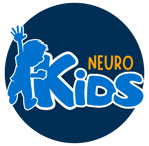
CHILDREN'S WELL-BEING AND MENTAL HEALTH
Growing with Balance: Quality of Life for Every Stage...
At NeuroKids, we don’t just focus on treating symptoms—we strive to understand each child from a neuropsychological, educational, and emotional perspective. Our methodology is based on early detection, evidence-based intervention, and continuous family support, setting us apart from other pediatric mental health services. Unlike other centers that may focus solely on traditional psychological therapy, at NeuroKids, we take an interdisciplinary approach, integrating neuropsychology, neuropsychiatry, clinical psychology, education, and child development. We assess how the environment, family, and school impact a child’s well-being, providing personalized strategies for each case. At NeuroKids, we believe that children’s mental health is the foundation for a healthy and successful future. Our mission is to provide a safe and specialized space where children can grow, learn, and develop with confidence and happiness.
Importance of Mental Health in Children and Adolescents
Mental health in childhood and adolescence is a fundamental pillar for the comprehensive development of children and young people. Emotional well-being not only influences their mood but also impacts their learning, socialization, self-esteem, and ability to face challenges. During these stages, the brain is constantly evolving, making it crucial to provide a safe environment and the right tools to manage emotions, prevent disorders, and foster resilience. When mental health is compromised, children may experience difficulties in school, social settings, and family life, which can affect their long-term quality of life. Addressing these aspects from an early age reduces the risk of more severe problems in adulthood, promoting balanced and fulfilling growth. Children and adolescents often face emotional or social challenges they may not know how to handle or express, which can lead to behaviors such as irritability, persistent sadness, or difficulties in their school environment. In these cases, early and appropriate support is essential to prevent these issues from worsening over time.
Common Disorders and Conditions in Childhood and Adolescence
During childhood and adolescence, various conditions can affect mental health and emotional development. Some of the most common include:
Neurodevelopmental disorders: Conditions such as ADHD, Autism Spectrum Disorders (ASD), and Specific Learning Disorders (dyslexia, dysgraphia, dyscalculia) can impact academic performance and social interactions.
Emotional disorders: Childhood anxiety, panic disorder, post-traumatic stress disorder (PTSD), and depression can significantly affect well-being, leading to isolation, irrational fears, or persistent sadness.
Behavioral problems: Oppositional defiant disorder (ODD) and conduct disorder can manifest as extreme disobedience, aggression, or difficulty following rules.
Difficulties in emotional regulation: Some children may struggle with frustration management, impulsivity, or disproportionate reactions to everyday situations.
Sleep and eating disorders: Conditions such as childhood insomnia, recurrent nightmares, anorexia, or obesity can be linked to unresolved emotional states.
Bullying and school adaptation difficulties: Exposure to school bullying or a lack of social skills can lead to low self-esteem, anxiety, or reluctance to engage in learning.
Early Detection, Prophylaxis, and Prevention
Early detection of mental health issues is key to preventing difficulties from worsening over time. The sooner a condition is identified, the more effective the intervention will be. Some warning signs may include:
Sudden behavioral changes (aggressiveness, isolation, irritability).
Academic difficulties without an apparent cause.
Sleep or eating problems.
Excessive fears or constant anxiety.
Difficulty making friends or maintaining social relationships.
Loss of interest in activities they once enjoyed.
LProphylaxis and prevention in children's mental health focus on promoting an emotionally safe environment, educating families about child development, and providing tools for emotional management. Implementing preventive strategies—such as socio-emotional skills training, positive parenting programs, and access to early psychological support—can reduce the incidence of disorders and improve the quality of life for children and adolescents.
What Does NeuroKids Offer in Well-Being and Mental Health?
Neuroscience-Based Approach – We apply scientifically backed tools and strategies to ensure effective care tailored to child development.
Comprehensive Intervention – We address not only emotional aspects but also cognitive, behavioral, and social factors, ensuring complete well-being.
Personalized, Family-Centered Care – We involve parents and caregivers in the process, providing them with tools to strengthen their child's emotional development at home.
Early Detection and Prevention – We focus on identifying warning signs before issues worsen, preventing emotional and behavioral difficulties from interfering with a child’s growth.
Educational and Therapeutic Approach – We not only help children regulate their emotions but also work on strategies to improve their academic and social performance.
Long-Term Support – We don’t leave families alone after an evaluation or initial intervention; we offer ongoing follow-up and guidance to ensure the child’s positive development.
WHY CHOOSE US?
At NeuroKids, we go beyond simply treating symptoms—we prioritize early detection and personalized intervention. Our goal is to provide each child and adolescent with the emotional support they need to manage their feelings in a healthy way, improve their overall well-being, and strengthen their resilience. We also ensure that families are actively involved, offering practical tools to support their child’s emotional and mental development every step of the way. Choosing us means opting for a comprehensive, multidisciplinary approach where every child receives the attention they deserve. We are committed to providing a safe space and the right tools to help them grow, learn, and thrive—guided by a specialized team that understands the importance of a strong and stable emotional foundation.




Schedule Your FIRST SESSION
At NeuroKids, we care about providing you with the best care from the very first moment. If you are ready to take the next step in your child's well-being and development, scheduling your first session is the first step toward a path of comprehensive and specialized support.
Here’s how the process works:
Appointment Request and Initial Interview (completely free).
Regular sessions last approximately 30 to 45 minutes.
PAP sessions are free and last approximately 15 minutes. (PAP sessions are for individuals in psychological crisis or with elevated stress levels only).


